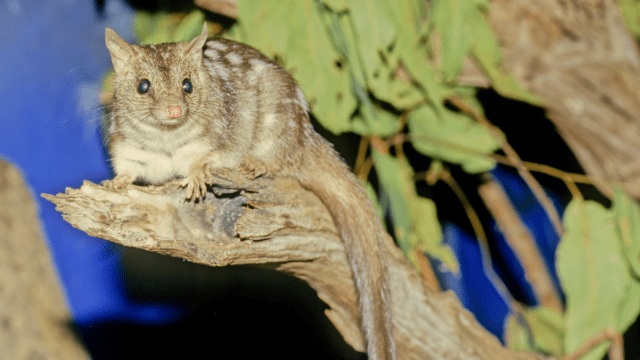Northern quolls are giving up sleep in favour of sex, and it’s becoming deadly for the cute little marsupials.
This study comes from the University of the Sunshine Coast (UniSC), and has investigated the habits of northern quolls native to North Australia. These endangered marsupials are carnivorous and are about the size of a house cat.
The study looked into why males of the species “mate themselves to death” in one season, as written by the researchers. They usually don’t live to breed again, while females of the species can live and reproduce for up to four years.
“They cover large distances to mate as often as possible and it seems that their drive is so strong that they forgo sleeping to spend more time searching for females,” UniSC senior lecturer in Animal Ecophysiology Doctor Christofer Clemente said.
“Something is definitely causing their health to fail after just one season and we think it is linked to sleep deprivation… The dangers of a lack of sleep are well documented in rodents, and many of the traits associated with sleep deprivation we see in male quolls, and not in females.”
During their breeding season, the male northern quolls… kind of let it all go. They stop caring about their appearance and don’t groom as much, they become aggressive, stop sleeping as much, lose weight, and start to act recklessly. They also become more prone to parasites.
Northern quolls are the largest marsupials that practice semelparity, the habit of putting investing all energy into a single breeding season, but the leading cause of death has remained a mystery up until now.
To uncover why, the research team fitted wild males and females of the species with tracking backpacks. These were used to analyse the behaviours, activity budgets, speeds and distances travelled by northern quolls.
And the results were particularly interesting. During the mating season, males travel longer distances with less resting time. This, along with the previously mentioned issues of behaving recklessly and becoming aggressive, made them easy prey for predators, and more likely to die of exhaustion or being struck by oncoming vehicles.
The research team says more work needs to be done on the topic, and that the results could be beneficial for studies on the wider Dasyuridae and Didelphidae marsupial families, found in Australia and Papua New Guinea.
The research is not currently viewable on the UniSC website, but a web version is available on Scimex and you can read the research paper in Royal Society Open Science.
